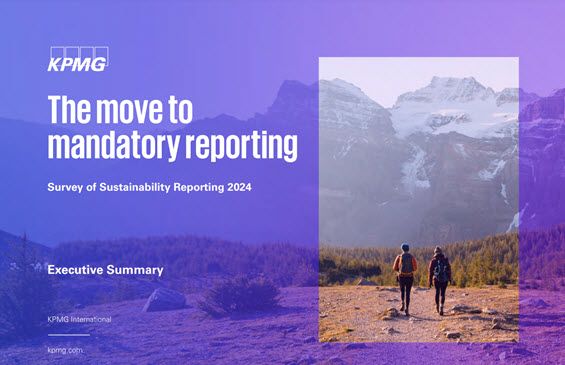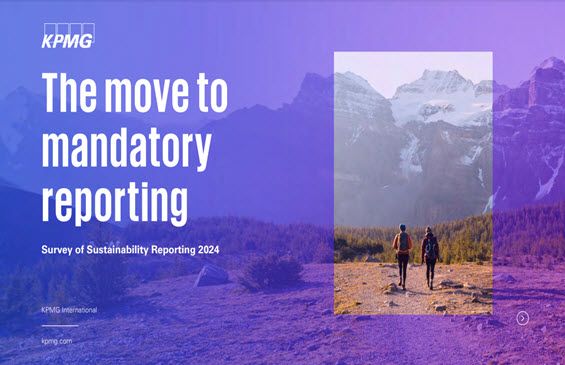KPMG's Australian Sustainability Reporting Survey outlines key trends in sustainability reporting among the ASX100, the largest 100 companies in Australia based on market capitalisation. Sustainability reporting by these companies represents the leading practice for reporting in Australia. This report complements KPMG’s Global Sustainability Reporting Survey which covers the 100 top companies in 58 jurisdictions, and the G250.
Key Australian highlights in sustainability reporting
The status of sustainability reporting within the ASX100 shows just how Australian companies compare to the rest of the world. The results demonstrate that although almost all of Australia’s top companies report on sustainability performance, there is still room for improvement in the areas of sustainability leadership, comprehensive disclosures, and third-party assurance.
As of December 2024, 97% of Australia’s top companies continue to provide sustainability reporting, which marginally outperforms 2024 performance of global peers.
Additional insights include:
- 90% of ASX100 companies recognise climate as a financial risk, with 76% reporting in line with the recommendations of the Taskforce on Climate-Related Financial Disclosures, putting these entities in a good position to report against the Australian Sustainability Reporting Standard (ASRS)
- 43% have acknowledged the ASRS and the upcoming mandatory reporting requirements in their sustainability reporting
- 67% obtain third-party assurance of sustainability information reported, a 13% increase since December 2023
- 90% are reporting carbon targets, with 37% using targets set in line with Science-Based Targets Initiative (SBTi).
ASX100 key trends in sustainability reporting
Australian Sustainability Reporting Standards: A call to action
The sustainability reporting landscape is undergoing a major shift with the release of new sustainability reporting standards across the globe.
The release of the first Australian Sustainability Reporting Standards (ASRS) in September 2024 is driving a different perspective and set of conversations in boardrooms, causing business leaders to stretch their thinking and ensure that from the top down they are making strategic decisions that take climate and broader ESG considerations more into account.
Businesses need to invest in sustainability reporting by:
- understanding stakeholder expectations
- using materiality assessments to focus the content of sustainability reporting
- aligning reporting to mandatory or voluntary frameworks
- investing in quality non-financial data management
- understanding the impact of climate change and social issues on business.
Key trends in sustainability reporting among the ASX100
Global Survey of Sustainability Reporting
First published in 1993, the KPMG Survey of Sustainability Reporting is produced every 2 years and this year’s edition provides analysis of the sustainability and Environment, Social and Governance (ESG) reporting from 5,800 companies across 58 countries and jurisdictions. Based on KPMG research, in 1999, just 35% of the largest 250 companies reported on sustainability. Reporting on sustainability and ESG is now part of doing business and is becoming the new normal with 96% of the G250 doing so.
KPMG's Global Survey of Sustainability Reporting found that:
- 80% publish carbon reduction targets
- 49% report on biodiversity and nature loss
- 30% use sustainability in calculating leadership pay.
The survey’s aim is to support those who have a responsibility for assessing and preparing their own organisation’s sustainability by focusing on:
- Key global trends in sustainability reporting
- Reporting on the risks of biodiversity loss
- Reporting on climate-related risk and carbon reduction
- Reporting on the UN Sustainable Development Goals (SDGs)
- Materiality
- ESG risks and governance.
Download KPMG's 2024 Global sustainability reports
Contact KPMG's sustainability reporting specialists
Find out how KPMG can help you fulfil your sustainability reporting requirements, or discuss the Survey of Sustainability Reporting in detail with our sustainability reporting specialists.











